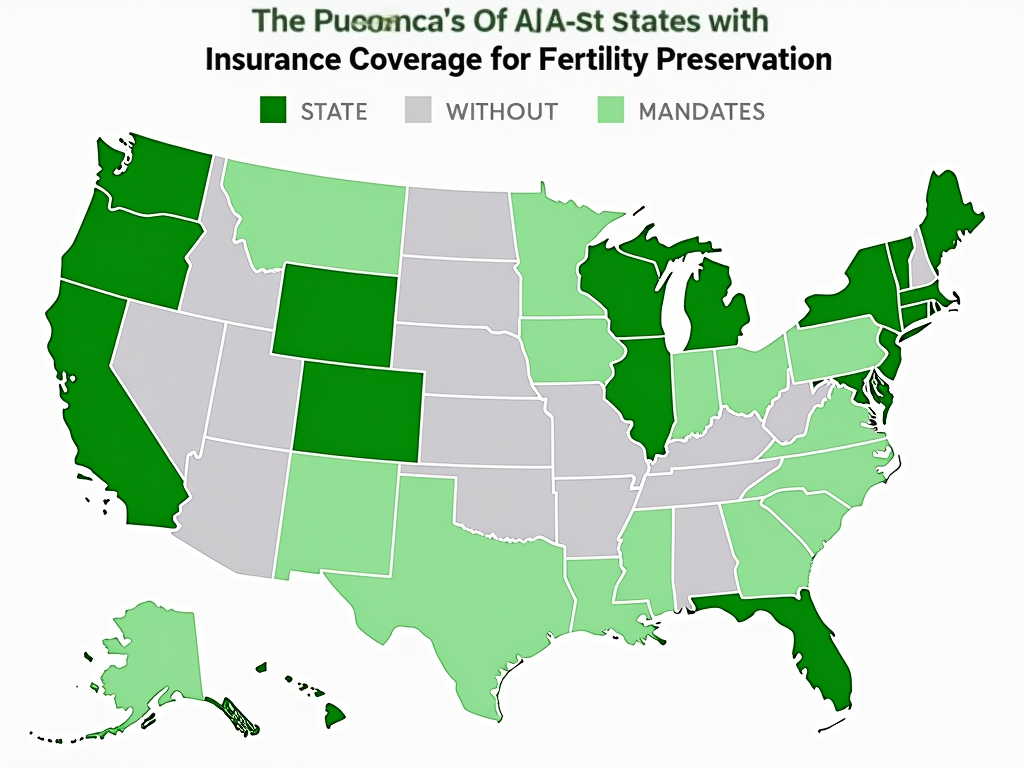The Latest Updates on State Fertility Laws: What You Need to Know
April 15, 2025, 8:20 a.m.
State fertility laws are constantly evolving, affecting access to treatments like fertility preservation for cancer patients. This comprehensive guide explores the latest updates, state-by-state differences, and what these changes mean for individuals seeking fertility care.
Introduction to State Fertility Laws
Fertility laws in the United States vary by state, shaping how people access treatments and insurance coverage. These laws cover fertility preservation, surrogacy, and assisted reproductive technologies like IVF. Since states set their own rules, where you live can determine your options and costs. This article breaks down The Latest Updates on State Fertility Laws to help you understand what’s changing and why it matters.

Fertility Preservation for Cancer Patients: A Growing Focus
Cancer treatments like chemotherapy can harm fertility, making fertility preservation a lifeline for many. Freezing eggs or sperm before treatment gives patients a chance to build families later. Thankfully, some states now require insurance to cover these services. This is a big win for fertility preservation for cancer patients, easing financial stress during a tough time.
States Leading the Way
As of 2023, several states mandate fertility preservation insurance coverage for cancer patients. Here’s a quick look:
- California: Covers preservation if treatment might cause infertility.
- Connecticut: Requires coverage for cancer patients with insurance.
- Delaware: Ensures access to egg or sperm freezing.
- Illinois: Mandates coverage for medical necessity.
- Maryland: Protects patients facing fertility-threatening treatments.
- New Hampshire, New Jersey, New York, Rhode Island: Similar laws apply.
These states set a strong example, but gaps remain elsewhere.
Recent Changes and Proposals
The push for better laws continues. In 2022, Massachusetts proposed a bill for fertility preservation insurance coverage for cancer patients, though it’s still pending. Advocates in Texas and Florida are also fighting for similar protections. These efforts show growing awareness of how vital fertility preservation is for those facing cancer.

Why These Laws Matter
Over 1.8 million Americans are diagnosed with cancer yearly, per the American Cancer Society. Many are young adults who want kids someday. In states with coverage, patients like Sarah—a 28-year-old with breast cancer—can freeze eggs before treatment without breaking the bank. In states without laws, costs can top $10,000, forcing tough choices. State Laws and Fertility Preservation: What You Need to Know can make all the difference.
Beyond Cancer: Other Fertility Law Updates
Fertility laws aren’t just about cancer patients. States are also tweaking rules on surrogacy and IVF:
- Surrogacy: New York legalized paid surrogacy in 2021, a major shift. Virginia updated its laws in 2020 to simplify the process.
- IVF Coverage: Nineteen states mandate some infertility coverage, but details vary. Arkansas covers IVF with conditions, while Texas leaves patients paying full price.
These updates reflect changing views on family-building.

Real Stories, Real Impact
Imagine John, a cancer survivor in a state without coverage. He crowdfunded to bank sperm before treatment—a stressful burden. Contrast that with Lisa, who used mandated coverage in New York to preserve her eggs. These examples show how The Latest Updates on State Fertility Laws affect real lives. Knowing your state’s rules can save money and heartache.
Tips for Navigating Fertility Laws
Here’s how to stay ahead:
- Check Your State: Look up your state’s laws on sites like RESOLVE (https://resolve.org).
- Talk to Experts: Fertility doctors and lawyers can explain your options.
- Speak Up: Join advocacy groups if your state lags behind.
Simple steps like these turn confusion into clarity.
A Look at the Numbers
Here’s a table of states with fertility preservation laws:
| State | Year Enacted | Coverage Details |
|---|---|---|
| California | 2019 | Covers preservation for medical necessity |
| Connecticut | 2017 | For cancer patients with insurance |
| New York | 2020 | Includes egg and sperm freezing |
More states may join soon—stay tuned!

Summary
State fertility laws are shifting, offering new hope for cancer patients needing fertility preservation and others seeking treatments like IVF or surrogacy. While states like California and New York lead, others trail behind. Understanding State Laws and Fertility Preservation: What You Need to Know empowers you to plan your future. Keep learning and advocating—change is possible.